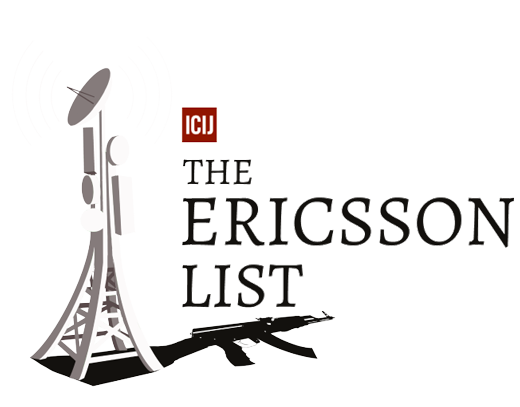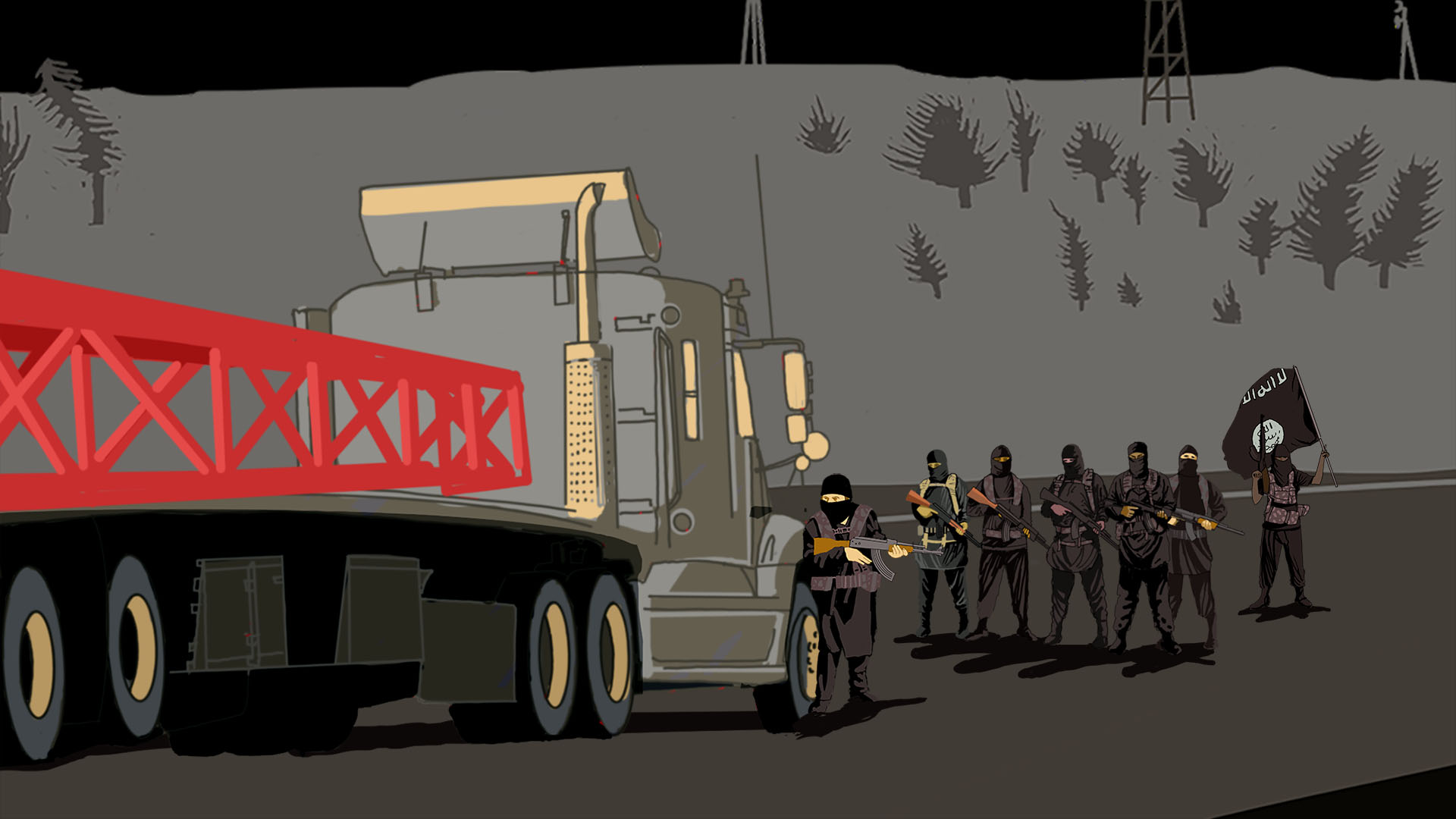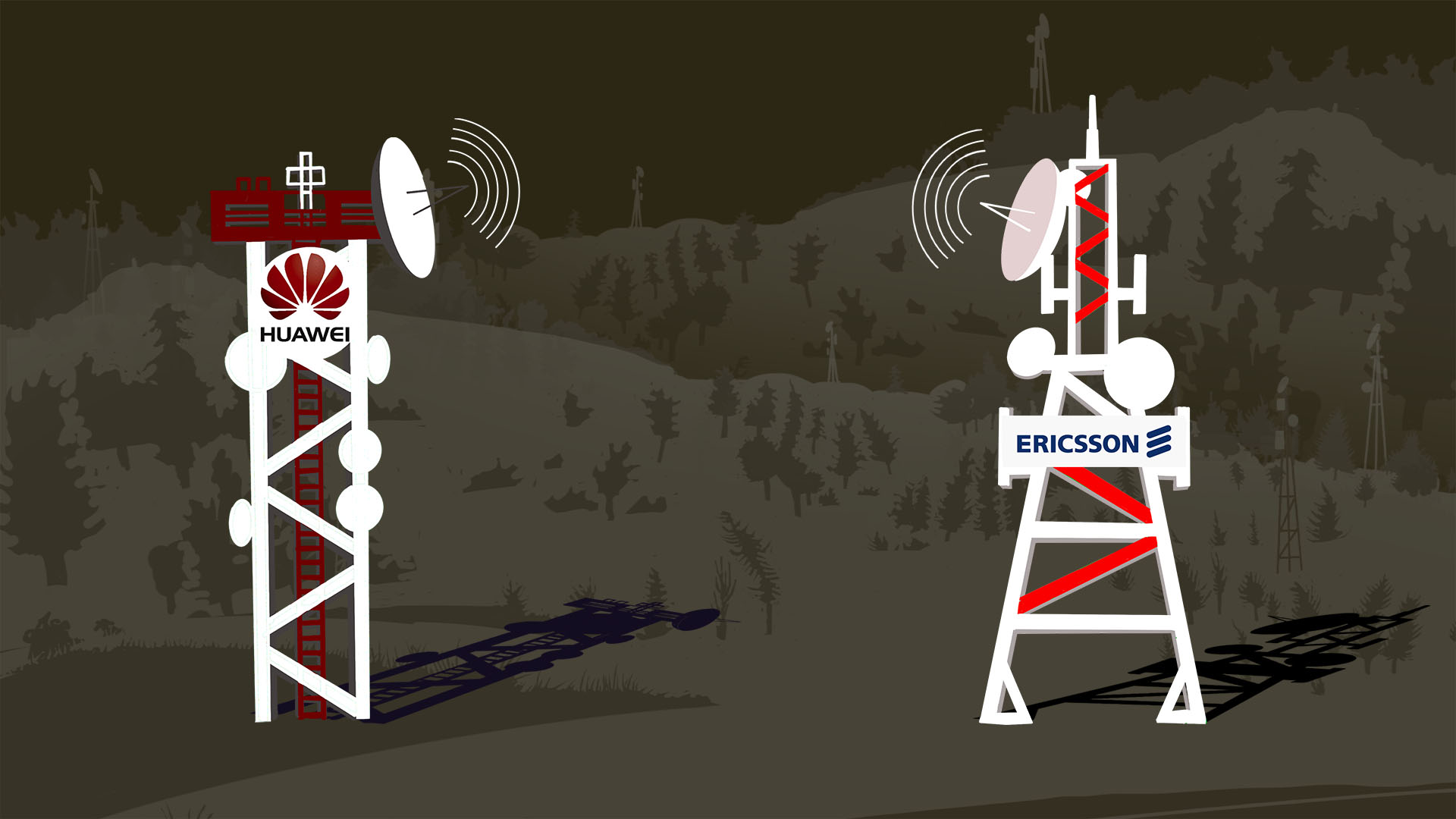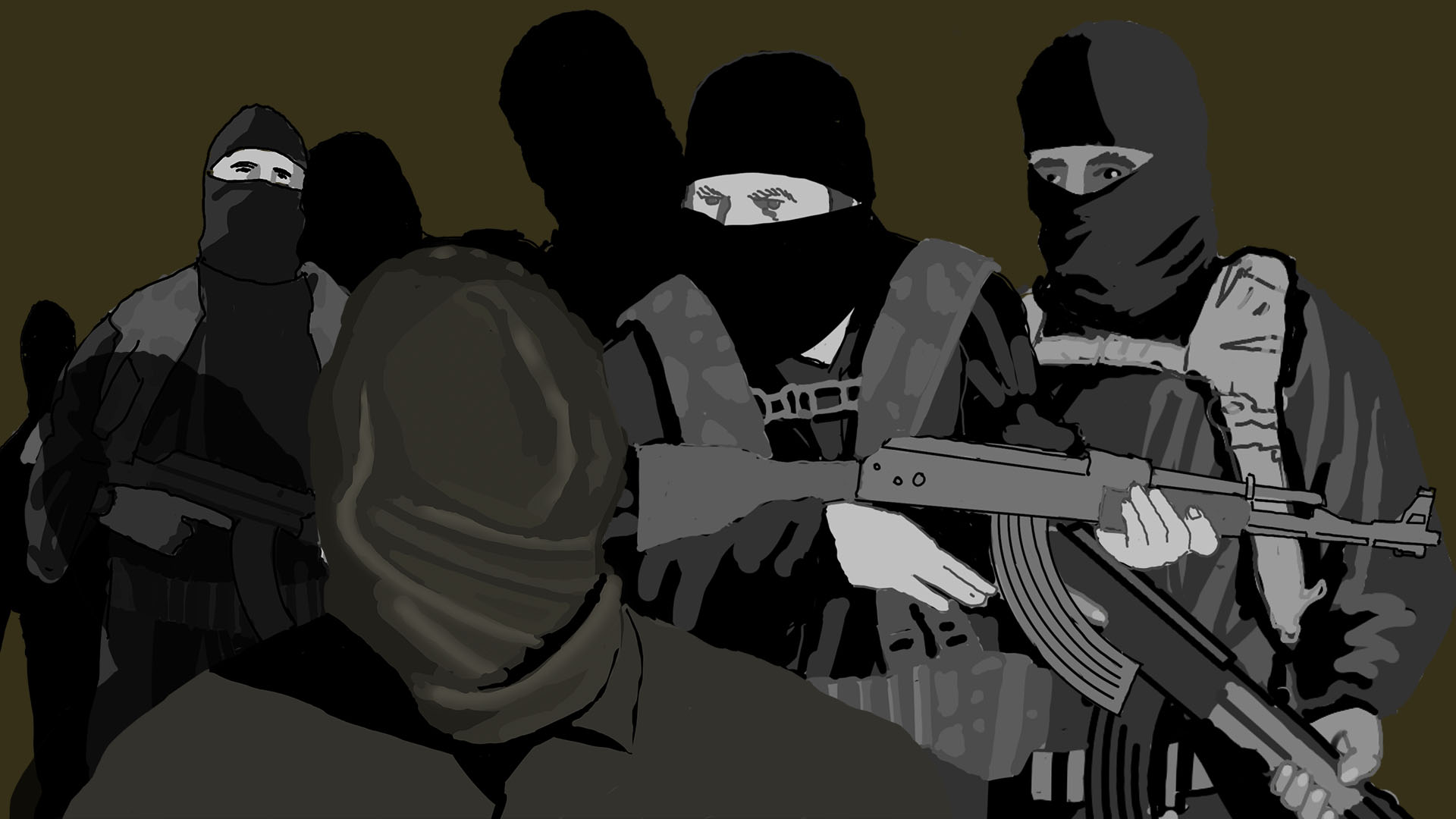FAQ
What is the Ericsson List, and other frequently asked questions about the investigation
What sort documents were leaked? Will ICIJ publish the Ericsson List files? Who was in the data? Frequently asked questions about the Ericsson List investigation, answered.

What is the Ericsson List investigation?
Telecom giant Ericsson made tens of millions of dollars in suspicious payments in Iraq, financing slush funds, trips abroad for defense officials and pay-offs to local corporate executives and for transports through terrorist-held areas, according to an extraordinary internal investigation obtained by the International Consortium of Investigative Journalists and shared with global media partners.
The investigation is based on an internal Ericsson review leaked to ICIJ and shared with a collaboration of more than 110 journalists from 30 partners in 22 countries. It documents a pattern of bribery and corruption so widespread, and company oversight so weak, that millions of dollars in Ericsson payments simply couldn’t be accounted for.
Ignoring warnings from within the company about the growing danger, Ericsson continued to operate in Iraq as politically-connected militants were paid off, millions of dollars went missing and workers were placed in harm’s way. Two executives were quoted as saying that to leave Iraq would be “premature” and would “destroy our business”, a reference to Ericsson’s business in Iraq.
One telecom engineer, Affan, told ICIJ and its partners that he was directed to approach Islamic State militants with a letter asking for permission for Ericsson and its regional partner Asiacell to work in Mosul. Affan, who worked for an Ericsson subcontractor, Orbitel Telecommunication, said that he was kidnapped by ISIS and put on house arrest for a month. He said Ericsson employees abandoned him and would not answer his frantic phone calls during his ordeal. Orbitel declined to comment.
The Ericsson List probe also found that the company engaged in corrupt practices in Iraq even as it was negotiating with U.S. prosecutors to settle charges related to bribery in five other countries.
Why does it matter?
The Ericsson List probe revealed entrenched corruption within an industry leader crucial to Western efforts to keep up with China in the race to develop information technology in the 21st century.
It also raised questions about the U.S. Justice Department’s practice of settling criminal cases against corporations with deferred prosecution agreements. The agreements impose fines, penalizing shareholders, but often avoid charging the executives responsible.
The Ericsson List amounts also to another grim assessment of the legacy of war and terrorism in Iraq.
What has Ericsson said?
After ICIJ and its partners put a range of questions to Ericsson, the company’s chief executive officer Börje Ekholm told a Swedish rival to our local partner that the company may have made payments to ISIS for its operations in Iraq. The CEO said the company had identified “unusual expenses dating back to 2018”. He said the final recipient of those payments had yet to be identified but there were records of purchased routes “through areas that have been controlled by terrorist organizations, including ISIS”.
Ericsson also issued a press release saying “several employees were exited from the company and multiple other disciplinary and other remedial actions were taken” after it investigated misconduct in Iraq. “Furthermore, Ericsson terminated a number of third-party relationships and prioritized the Iraq country business for enhanced training and awareness activities, policies and procedures, and third-party management processes,” the release said.
Ekholm told Reuters the company chose not to disclose the Iraq probe because “the materiality of our findings did not pass our threshold to make a disclosure”. Ericsson’s share value plunged when it disclosed the Iraq investigation following questions from ICIJ.
What does Ericsson do?
Formally known as Telefonaktiebolaget LM Ericsson, based in Stockholm and with roughly 100,000 employees in more than 140 countries, the company sells IT and communications infrastructure, software and services, including 3G, 4G and 5G equipment.
What is ISIS?
The Islamic State of Iraq and Syria, or ISIS, is a Sunni Islamist militant group known for extreme violence and radical interpretation of Islamic law. It emerged from the remnants of the al-Qaida terrorist group in Iraq and is also known as the Islamic State, ISIL or Daesh.
ISIS leader Abu Bakr al-Baghdadi announced the formation of a so-called caliphate after the group’s fighters seized Mosul, Iraq’s second-largest city, in the country’s north, and Tikrit, 142 miles by road to the southeast, in June 2014.
Contemporary reports and United Nations investigators say ISIS fighters committed atrocities in Mosul and other cities that fell under their control, including the selling of young Yazidi women as sex slaves, the massacre of thousands who ended up buried in mass graves, and the videotaped beheadings of Western prisoners.
By December 2017, a coalition of U.S., Iraqi and Kurdish forces, along with Iranian and Syrian fighters, had retaken ISIS-held territory in Iraq and neighboring Syria. Al-Baghdadi died in 2019 by detonating a suicide vest after being hunted down by U.S. forces. His successor died in similar circumstances earlier this year. ISIS fighters continue terrorist activities in the Middle East and Africa.
What type of documents were leaked?
The Ericsson List is based on leaked internal Ericsson compliance reports that identify a culture of graft so widespread that company officials exploring the matter compiled a spreadsheet of investigations into employees’ alleged corrupt practices around the globe. Among the “breaches” identified were bribery, fraud, money laundering and obstruction of the investigation.
The leaked documents allege corrupt practices in 14 countries, including Iraq, not covered in a deferred prosecution agreement Ericsson reached with U.S. prosecutors in 2019. That plea deal settled bribery charges involving Djibouti, China, Vietnam, Indonesia and Kuwait.
Besides Iraq, the Ericsson compliance officers investigated allegations of bribery and other wrongdoing in Croatia, Egypt, South Africa, Spain, Portugal, Angola, the U.S., Brazil, Azerbaijan, Morocco, Bahrain, Libya and Lebanon. China was both investigated by Ericsson internally and was part of the countries covered in the deferred prosecution agreement.
The largest leaked report — prepared by Ericsson with the assistance of Simpson Thacher & Bartlett LLP, an international law firm based in New York — is a summary of the accounts of 28 witnesses, 22.5 million emails and 4 terabytes of documents. The documents reviewed for the report include accounting records, maps, social media posts and color-coded charts. Ericsson investigators captured and copied company computers and mobile phones, and they reviewed evidence from 2011 to 2019. The report reviewed evidence from 2011 to 2019.
Where did the leak come from?
ICIJ received the leaked documents from an anonymous source.
ICIJ and its partners performed rigorous verification and cross-checking of the leaked information across several countries to ensure its authenticity.
Will ICIJ publish the Ericsson List documents?
ICIJ will publish only excerpts from the documents for source-protection and to safeguard the innocent. In excerpts, we name only people and companies that have been contacted for comment.
Why is the investigation called the Ericsson List?
We called the project the Ericsson List to echo Ericsson’s own list and to emphasize how widespread the shady practices were.
We revealed that Ericsson enabled corruption and wrongdoing to further its commercial interests over many more years and many more countries than previously known.
ICIJ’s probe is ongoing.
Who are some of the key individuals named in the leak?
Roger Antoun: Manager overseeing an Iraqi network upgrade known as the Peroza Project who blew the whistle on corruption after investigators accused him of embezzling $308,000. Antoun declined to comment.
Jawhar Surchi: Kurdish businessman who allegedly used connections to public officials to help win deals for Ericsson. Ericsson sent more than $79 million over eight years to Al-Awsat, most of which went to Surchi’s Jordanian bank account. The Surchi are referred to in the leak as a powerful Kurdish family once allied with the late Iraqi dictator Saddam Hussein.
In two interviews with ICIJ partner the Washington Post, Surchi acknowledged his extensive political connections were key to helping foreign companies compete in Iraq. “My strength was, I knew the people, knew all the prime ministers,” he said, listing them by name.
He denied winning contracts through bribery or engaging in any sort of corruption and said he never saw Ericsson do so. Of the allegations, he said,“somebody is trying to discredit” his company. “Whatever is said is from jealousy.’’
Tarek Saadi: American-educated Ericsson executive, in charge of growing the Iraq business, who hired Jawhar Surchi’s Al-Awsat, a telecommunications systems vendor, as a sales agent. He did not respond to requests for comment.
Sirwan Barzani: Powerful Kurdish businessman, army general and key U.S. ally in the war on terror. The documents say Ericsson approved a $50,000 payment in cash routed through a charity at his request but Ericsson received a receipt bearing a different charity name and a forged signature.
In response to questions raised by the Ericsson reports, a spokesman for Sirwan Barzani said that after Daesh, also known as ISIS, took Mosul in 2014, he rejoined the Peshmerga — stepping back from his company Korek, an Ericsson customer — to defend his country.
According to Ericsson investigators, another member of the wealthy Barzani family, Rasech Barzani, collected $1.2 million for “facilitation to the chairman” Sirwan Barzani. Rasech Barzani did not respond to requests for comment.
How big was the Ericsson business in Iraq?
According to the leaked Ericsson documents, “total net sales” in Iraq from 2011 to 2018 were approximately $1.9 billion. Ericsson has been a presence in Iraq since the 1960s when it helped install a telephone system in Baghdad.
How big a problem is corruption in Iraq?
Anti-corruption watchdogs, including Transparency International, say deeply entrenched corruption exacerbated by weak institutions and political patronage remains rampant and is a core grievance among ordinary Iraqis.
Has Ericsson previously been accused of corruption?
Yes.
In December 2019, Ericsson reached a $1.06 billion agreement with the U.S. Justice Department and the Securities and Exchange Commission to settle allegations of improper payments in several countries. The settlement included a criminal penalty of more than $520 million and a separate $539 million civil mandated repayment, known as a disgorgement, to the SEC in a related matter.
The deferred prosecution agreement and fines resulted from a U.S. investigation into violations of the Foreign Corrupt Practices Act involving criminal conduct over a 17-year period, authorities said.
An Ericsson subsidiary, Ericsson Egypt Ltd., pleaded guilty to the criminal charges of taking part in a scheme to bribe foreign government officials and falsify books and records.
What charges were resolved by the Ericsson settlement?
Among a host of Foreign Corrupt Practices Act violations cited by the U.S. Justice Department, prosecutors charged that in China, from 2000 to 2016, Ericsson subsidiaries caused tens of millions of dollars to be paid to various agents, consultants and service providers, some under sham contracts for work that was never performed. Some of that money was used for an expense account that covered gifts, travel and entertainment for foreign officials, including customers from state-owned telecommunications companies.
In Vietnam, between 2012 and 2015, Ericsson subsidiaries transferred about $4.8 million to a consulting company to create off-the-books slush funds that were used to pay third parties unable to pass Ericsson’s vetting process.
In Indonesia, between 2012 and 2015, an Ericsson subsidiary paid about $45 million to a consulting company to run a similar off-the-books payment system.
In Kuwait, between 2011 and 2013, an Ericsson subsidiary won a $182 million contract from a state-owned telecom firm after a sales agent gave inside information to an Ericsson employee. The Ericsson subsidiary subsequently paid $450,000 to a consulting company at the request of the sales agent by entering into a sham contract with the company and approving a fake invoice to conceal the payment.
What did Ericsson agree to do in its 2019 leniency deal with the U.S.?
Ericsson said it would pay a total criminal penalty of $520,650,432 to the United States, which included a $9,520,000 criminal fine paid on behalf of a subsidiary, Ericsson Egypt Ltd.
Ericsson also agreed to implement stricter internal controls, retain an independent compliance monitor for three years and cooperate fully with the U.S. government in any ongoing investigations.
In a related settlement with the SEC, announced at the same time with the Justice Department deal, Ericsson agreed to pay $539,920,000 in disgorged profits and prejudgment interest. The criminal and regulatory penalties to be paid by Ericsson totaled $1,060,570,432.
Has Ericsson honored its commitments?
In October 2021, Ericsson disclosed that it “has received correspondence” from the Justice Department accusing the firm of breaching the terms of the deferred prosecution agreement “by failing to provide certain documents and factual information.” The department provided no details.
Ericsson said it intended to respond to the Justice Department and would continue to comply with the terms of the agreement. Ericsson chief executive officer Börje Ekholm told Swedish journalists the matter was unrelated to Iraq.
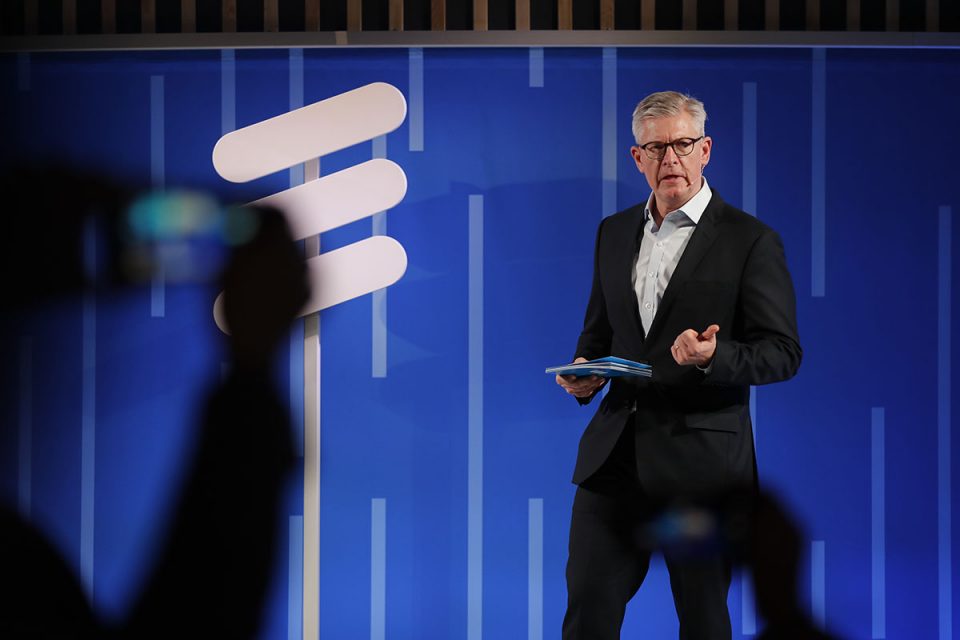
Has anyone been charged in connection with wrongdoing by Ericsson?
A former Ericsson account manager, Afework “Affe” Bereket, a dual citizen of Ethiopia and Sweden, has been charged by the United States with conspiring to pay millions of dollars in bribes to government and telecom company officials in Djibouti to win a multimillion-dollar contract for Ericsson. He is also charged with conspiring to launder funds to promote the scheme. Bereket remains at large.
No Ericsson executives have been charged with wrongdoing.
How did the Justice Department respond to the Ericsson List revelations?
The Justice Department and the Securities and Exchange Commission declined to comment on any aspect of the Ericsson case. It is unclear how much they knew about the alleged abuses in Iraq.
Who are ICIJ’s partners on the investigation?
ICIJ partnered with SVT in Sweden; The Washington Post; ARIJ in Beirut, Lebanon; Daraj in Amman, Jordan; Siraj in Syria; Le Monde, Premières Lignes and Radio France in France; The Guardian and the BBC in the U.K.; Politiken in Denmark; WDR, NDR and Süddeutsche Zeitung in Germany; the Canadian Broadcasting Co. in Canada; El País in Madrid, Spain; YLE in Finland; De Tijd, Knack and Le Soir in Belgium; The Irish Times in Ireland; Het Financieele Dagblad, Platform Investico and Trouw in the Netherlands; Deutsche Welle’s Istanbul, Turkey, office; Expresso in Portugal; Shomrim in Israel; L’Espresso in Italy; The Wire China; and Aftenposten in Norway.
Contributors: Joe Hillhouse, Richard H. P. Sia, Tom Stites, Ben Hallman, Nicole Sadek, Asraa Mustufa, Jelena Cosic, Karrie Kehoe, Gerard Ryle.
